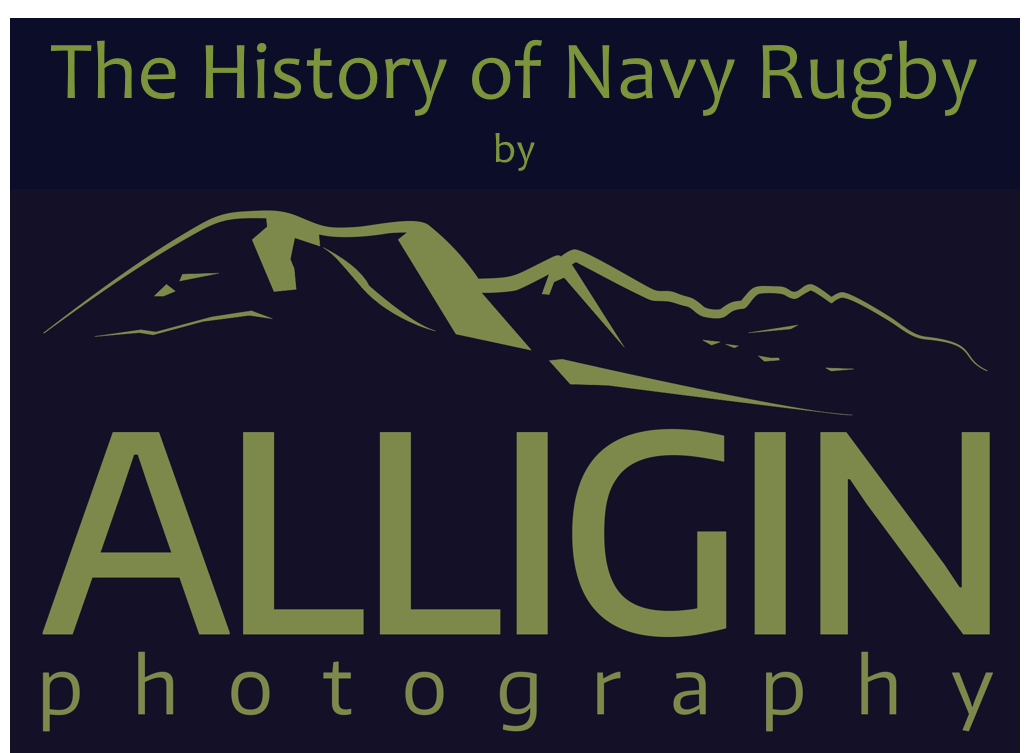C.C. ‘Kit’ Tanner AM
Born 24 June 1908, Cheltenham, England
Died 22 May 1941, Mediterranean, HMS Fiji
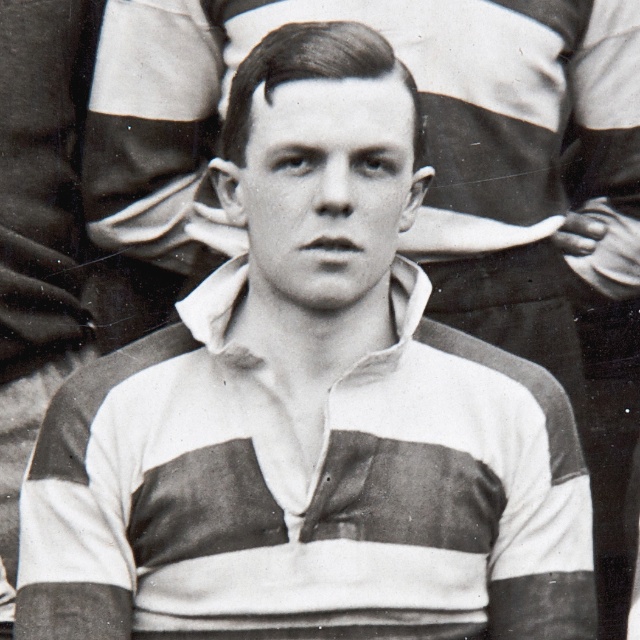
Under the 'rules of membership' of Heart of Oak, Kit Tanner is not eligible as I can not find a record that he ever played rugby for the Royal Navy. However he was both a rugby and a Navy man and I hope that readers will appreciate why he is included. Sometimes a rule has to be broken! Christopher Champain 'Kit' Tanner AM's name is inscribed on the Portsmouth Naval Memorial, Panel 60 Column 3.
Clubs
Cambridge University
Richmond
Gloucester
County
Gloucestershire (County Champions 1931-32)
Country
England (5 caps)
An extract from the London Gazette, 28 April 1942 on the posthumous award of the Albert Medal:
“The Reverend Christopher Champain Tanner, Temporary Chaplain, R.N.V.R., H.M.S. Fiji, who, when H.M.S. Fiji was sunk in the Battle of Crete, stayed to save the wounded men from the sick bay, and was one of the last to leave the ship. While in the water he spent himself in helping men to rafts and floats and, when the rescuing ship came up, in bringing over to her disabled men and such as could not swim. At length only one man remained to be brought across. Despite his exhaustion Mr. Tanner made a last effort to save him. He brought him across and saw him safely on board. But when hauled up himself he died within a few minutes.”
A single paragraph that says so much but also so little. Kit Tanner was the only England International to be awarded the Albert Medal throughout World War II and as such deservedly sits along side Arthur Leyland Harrison, the only England International to be awarded the Victoria Cross. Both have been inducted as Heart of Oak members on the History of Navy Rugby.
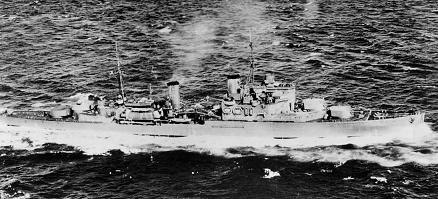
Kit Taner joined the RNVR as a Padre at the outbreak of War and was subsequently posted to the battle cruiser HMS Fiji. In 1941 Fiji formed part of the Mediterranean fleet tasked with preventing Germany from invading Crete. The fleet was regularly dive bombed by Luftwaffe Stukas and during the respite from these attacks had to endure incessant higher level bombardment from Junkers. Prior to Fiji being sunk the Fleet had already lost Juno, Greyhound and Gloucester. Records suggest that before the Fiji succumbed over 350 german bombs had been dropped upon her. HMS Fiji’s captain that day was former Navy Rugby captain, Welsh International and future Vice Admiral, Captain Peverill William-Powlett. William-Powlett was to be awarded the DSO for his own actions on that fatal day in May 1941.
It is said that William-Powlett gave no orders to Tanner but allowed the Padre to have a roving role. He trusted Kit’s instincts. Where to find Kit Tanner? Where ever the men were considered to be in the most danger, so Kit was along side them. In William-Powlett’s own words:
“His cheerful influence infected the bridge and ‘By God, I needed cheering up,’ said the Captain grimly, and the galley where the cooks toiled to provide hot cocoa and the inevitable bully beef sandwiches.
It permeated to the engine room where sweating stokers laboured in a foul atmosphere which could at any moment become a shambles of death. And the crews of the anti aircraft guns, who were firing their guns
red hot knew that Kit Tanner would be along with the sweets, cigarettes, cups of cocoa and the type inconsequential humour to be found in Portsmouth music halls.”
The order to abandon ship was given when the Fiji, listing at 30 degrees, received more bombardment and flipped on to her side. Her pom-pom gun still stubbornly firing away.
Over the next few hours Kit was to earn the Albert Medal but loose his life. What was captured in a single paragraph by the London Gazette was pieced together by Mr Stanistreet with the help of Mrs Christine Leighton (Cheltenham College Archives) and Mrs Janet Johnstone (Librarian and Archivist of Cheltenham Ladies College). His extract is reproduced in full:
“At that point, Kit Tanner knew he had one duty which took precedence above all others. In the sick bay were some 60 wounded men.Tanner personally supervised their removal to the one whaler left in service. ‘He was untiring in his ministrations,’ said Captain William Powlett, ‘And forgot nobody.’
When the time came for him to jump into the sea he found that he had a new parish, approximately half a square mile of choppy Mediterranean.
Some of Fiji’s men, glad to be free of the bombing, took to the sea immediately, almost gratefully. A handful of strong swimmers, led by the water polo team, struck out for the destroyers Kandahar and Kingston, which had closed in to see Fiji’s last moments afloat.
There were a number of vintage seamen aboard who had been in the ‘drink before. They made wry jokes about compulsory bathing and exhorted their comrades to ‘come in, it’s lovely and warm’.
Philosophical and fatalistic, they lay in their lifejackets and waited to be rescued.
When the men in the sea saw the two destroyers withdraw into the gathering darkness, some of them lost heart and drowned. These were stokers, many stripped to the waist and glad to be quit of the stifling heat of the boiler-rooms, who succumbed to the cold as night wore on.
There were teenage boys who saw no hope of rescue. There were men who could barely swim and men who could not swim at all.
It was these less resilient souls who became Kit Tanner’s special concern.
Fiji’s serviceable life-saving equipment had been reduced to one whaler and two Carly floats; the rest had been jettisoned for HMS Gloucester’s survivors.
Now the survivors of 9 were in a desperate plight. The whaler was crammed with wounded and the Carly floats were designed to take only 20 men each.
In the water, Kit Tanner was a constant tower of strength. He helped men too far gone to help themselves to the floats. He administered the life saver’s shock treatment – a shrewdly delivered right hook to the jaw to a young seaman in the grip of terrible panic. He successfully dissuaded a Marine from swimming to Crete (there were Marines still fighting on the island and this man was determined to join them). He assisted a seaman with his arm blown off, who subsequently survived.
He led men in singing and soon the strains of ‘Roll out the barrel’ smote the night. There were other songs, too, which he had heard sung in the Gloucester Rugby Football Club bar. Some of the words had then caused his hand to stray dubiously to his clerical collar but they seemed appropriate to the occasion now.
After four hours in the water, most of the time in darkness, only the more determined singers, Kit Tanner amongst them, were still in full voice. Then, shortly after midnight, cheering started and torches were frantically flashed. A dark shape looming out of the blackness, closely followed by another, told the men in the water that Kandahar and Kingston had come back for them.
Aboard the Kandahar, there were blankets, hot drinks and cigarettes for Fiji’s survivors. In the warmth of the wardroom and mess-decks the rescued men began to talk of survivors’ leave.
Kit Tanner was brought aboard Kandahar. But for him, rescue did not mean comfort and cheerful anticipations.
There were still men in the sea; men too far gone in exhaustion to grasp the ropes lowered to them from the destroyer. Tanner made these men his special responsibility. Thirty-four officers and 500 men were saved out of Fiji’s total complement of 700. Nearly 30 of these men owed their lives to Tanner.
No accurate count was possible of the number of times he dived from Kandahar bring in yet another man. He would not listen to anyone who attempted to dissuade him from further attempts. And shortly after his last rescue, he died from exhaustion.
The Albert Medal, instituted by Queen Victoria in 1666 for saving life at sea, was one of the rarer rewards of the war. It has been worn by officers and men of the Royal and Merchant Navies; by lifeboat men and policemen.
And by one Minister of God – The Reverend Kit Tanner.
Another Account
The following account of Kit’s exploits was written by John Cookson and submitted to the BBC’s WW2 People’s War by Chris Comer of Stockport Libraries.
Kit Tanner: A Hero of the Battle of Crete by Stockport Libraries
John Cookson was serving on the Fiji when it was sunk and witnessed Kit Tanner’s bravery and wanted to commemorate it. This is the story in John’s own words:
“I joined the cruiser HMS Fiji in January 1941. I was in the Royal Marine detachment on the ship. I am writing this because I want to inform you of one of the many unsung heroes of WWII. He was the ships Padre and gave his life in his efforts in saving some 30 men.
The Fiji was one of the many British warships which were sunk at the Battle of Crete. HMS Gloucester had been bombed and sunk and we went to pick up their survivors. We released some of our life rafts but we had to leave because we were being attacked by dive bombers.
Later on at about 7pm we were attacked and sunk by the dive bombers. We had some life rafts but not enough for all the survivors. Whilst we were in the water the Padre, Kit Tanner, was cheering us up and urging us to keep going and tending to the wounded. The destroyer Kandahar came to pick us up but had to leave because she was under attack. Their captain shouted for us to keep together and that they would come back for us after dark. After about 4 hours the destroyer returned to pick us up. They put scrambling nets over the side so that we could climb up.
Many of the men were exhausted and some were wounded and did not have the strength to climb the nets. Kit Tanner repeatedly jumped overboard to help these people climb aboard. He saved about 30 men by helping them climb aboard. The effort became too great for him . He came aboard and collapsed and died. He gave his life for the men.
Greater love has no man than this. I knew because I was there”
The story of Kit Tanners bravery was reported in a moving article in the Daily Express which we think was published in July 1941.
Kit Tanner – The Rugby Man
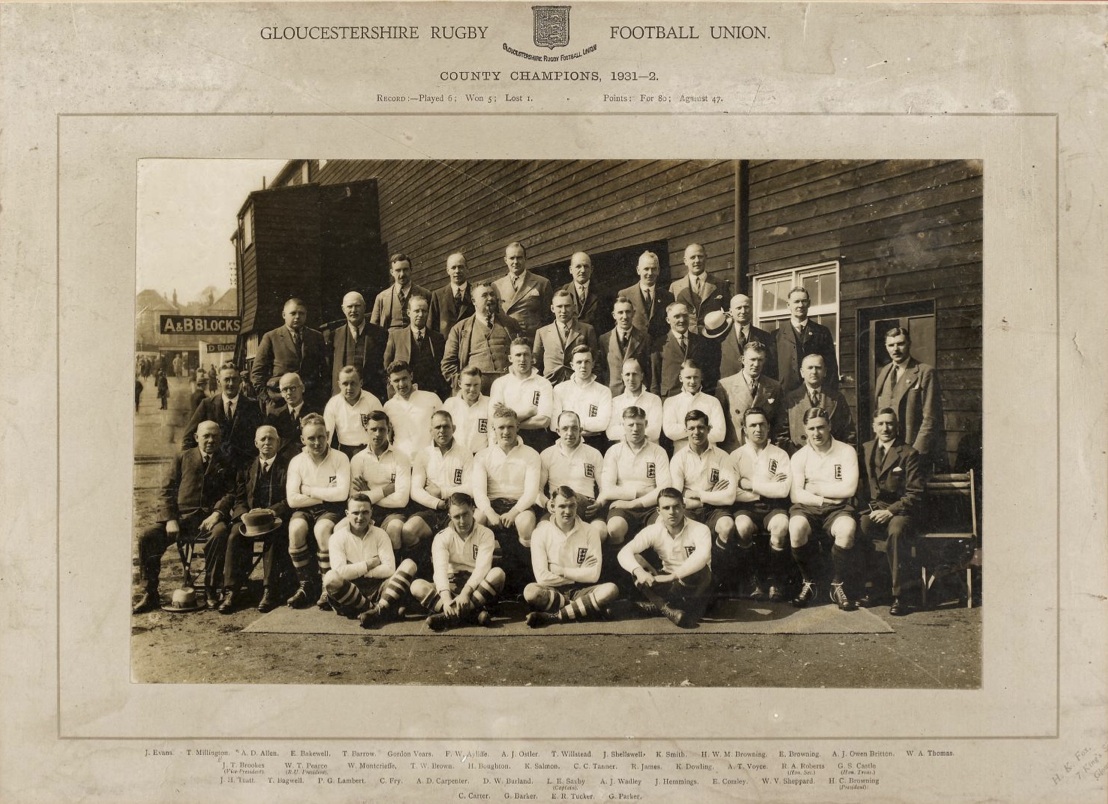
{For a fuller account read the Rugby History Society Article by D A Hunter}
Kit Tanner won five caps for England in his International career but it was the Barbarians who can claim credit for unearthing the talented wing three quarter. In 1930 they selected Kit as their ‘uncapped’ player for the annual Mobbs Memorial Match against the East Midlands. By the final whistle Kit had scored a hat trick of tries and received the following tribute from the the Times:
“the strong and determined running of Tanner had been one of the features of play.”
Two weeks later Kit Tanner won his first cap for England in the Calcutta Cup match against Scotland. Although England lost the game the strong running of Tanner had caught the eye. The following 1930-31 season was a year where Kit did not add to his international honours although he did win his Blue from Cambridge University. However the following season he was to play in four matches starting with the touring South Africans and ending (his last cap) with a degree of symmetry against Scotland. His last game for England was noted as being the match where he scored his first (and only) try at International level in his contribution to the team effort that returned the Calcutta Cup south of the border. The try a strong run, handing off Scotland’s MacPherson on the way was a fitting finale to his International career. Another couple of matches for the Barbarians meant that he had played six, won six for the most famous club in World rugby. The same season he was also part of the Gloucestershire side that won the County Championship as well as playing for the famous Cherry and Whites, Gloucester RFC. A brief but intense rugby career included another season at Kingsholm before it was time to move on.
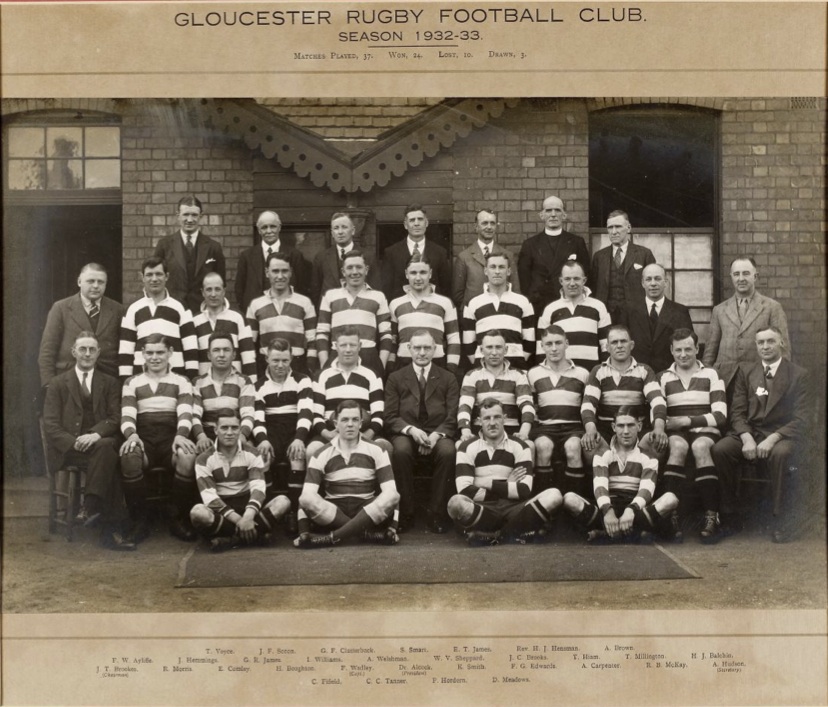
His rugby then took a back seat to his ministerial duties. Ordained in 1935 he preached for two years in Farnham before, upon getting married, he returned ‘home’ to Gloucester where he ministered until enlisting to the RNVR on the outbreak of war in 1939.
Kit’s Albert Medal
Kit’s Albert Medal was stolen in a burglary. However when trying to be sold the dealer noted the name and reported it. The medal was duly returned to his widow who bequeathed it to the daughter Kit never knew, Angela. In 1971 Albert Medals could be exchanged for the George Medal but I believe the intent of the family is to keep the original medal to be passed down through the family to keep alive the story of Kit Tanner and the other brave men of HMS Fiji.
And Finally
The History of Navy Rugby website has had a record of Kit Tanner for some time on the Internationals page thanks to the good work of John Walton. I ended up researching Kit through an email received from Anne and Terry Short (Gloucester RFC stalwarts) about the book by Martin Davies “They Played for Gloucester and Fought for their Country” . Anne and Terry pointed out that I may wish to uncover a little more on Kit Tanner. The excellent Gloucester Rugby Heritage website had a small amount on Kit and also some team photographs in which he featured. The rest, they say is History. Thank you Ann & Terry.
A poem to HMS Fiji by Brian Walker, Secretary of the HMS Fiji Association (Australia)
H.M.S. Fiji: Lost 22 May, 1941
At the end of the day
When the roll is called
And their names are read aloud
We shall hear the hymn
‘Abide with me’
Above the waves of a restless sea.
For they went to war
And gave their lives
For the likes of you and me
So all stand and remember
The bravery
Of His Majesty’s Ship Fiji
And when the tumpets call
And the mighty seas
Give up their sacred dead
Bring together the crew
Of that fighting ship
His Majesty’s Ship Fiji
